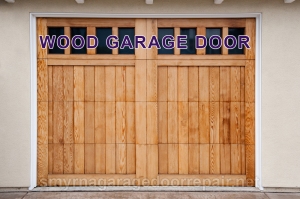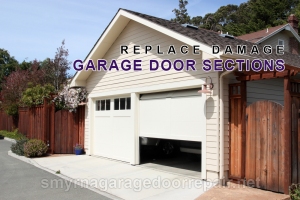Weather conditions can have an impact your garage door’s performance. This is less than ideal in the coldest seasons, when homeowners want to be able to keep everything closed-up to warm up the house. Unfortunately, garage door issues are very common during cold weather – but preparing for these will enable you to quickly resolve your troubles. Read through our list of commonly-found glitches to ensure your garage door is well-maintained as the temperature drops.
Here is a handy breakdown of some of the problems that Smyrna Garage Door Repair in Smyrna, GA, along with other garage door repair professionals, constantly need to attend to in the coldest months.
1) Creaky or noisy doors
This is probably one of the most common complaints garage door technicians receive during the winter season. As the door is opened or closed, it may become noisier than you are used to – grumbling, complaining, creaking and screeching. While noisy doors can be a sign of damage, in the winter months that’s usually just a sign that it needs a bit more lubrication. You will need to buy some lube and apply it to the necessary parts, including the joints and hinges. If that doesn’t work, then something is amiss: and that will be when you may need to call a garage door repair technician to inspect things further.
2) Problems opening and/or closing the door
Whether that means your door is not opening completely or not closing all the way, the cold weather can cause a few issues that may make it more difficult for your door to operate smoothly. Once again, it could be as simple as oiling up the right parts – but opening and closing issues could actually mean your door has become misaligned. Check if the door is out of balance, and see if the issue can be amended by tapping each side of the door back into position. Be careful, though: if your door is too far out of track, fixing it will be very dangerous. If in doubt, get in touch with an expert.
3) Weather Stripping Failure
If you live somewhere that experiences heavy snow, you will likely encounter this problem. When water freezes near a closed garage door, the weather stripping may get stuck to the ground. In this scenario, the weather stripping will likely tear off as soon as the door is raised – leaving your home with poor insulation and a hefty energy bill. The best way to prevent this? Check that the area in front of your garage door is clear of puddles and snow. Simple as that!
4) Excess grease building up on tracks and rollers
Now, this is something that can easily occur at any given time of the year. In the winter months, though, it can lead to some of the problems we’ve already covered (misaligned rollers being a key example). Actually, finding the right balance between lubrication levels along the tracks and rollers is a bit of a trial and error, but is an important part of your garage door maintenance. Oil up your tracks if needed, but try not to overdo it – apply it in small amounts to reach the right consistency.
5) Breakage because of contracting metal
A very common issue in the colder months. The drop in temperature will cause the door’s metal components, including the springs and screws, to shrink and contract. You can’t prevent this from happening, but you can prevent it from causing any kind of breakage or damage by ensuring all metal parts are well-lubricated. Just remember to keep the oil away from the tracks to avoid the issue we mentioned in the previous point.
And if you do end up with a broken spring – do not try to fix things yourself! Torsion springs especially are quite dangerous to work with without adequate training. Stay on the safe side and call a repairs professional right away.
6) Thickened or hardened grease on your door
The majority of lubricating greases are created to operate under extremely hot temperatures – it’s actually the reason why they work so well with motor engines. Unfortunately, that means the grease doesn’t perform as well when exposed to cold weather conditions. As the temperatures drop, it’s very likely that your garage door’s grease will thicken up and harden. To prevent this from causing any hassles, keep a close eye on your door’s hinges and tracks and make sure to remove any build-up along the way. Old, hardened grease can be removed from your garage door using an applicable solvent. Once you’ve cleaned up the build-up, replace it with a silicone-based oil – this will last you through the winter months much better than your standard oils.
Throughout this list we have identified certain times when you may need to call on a repairs professional. If you need to find one in your area, make sure to ask people you trust for recommendations and keep 2-3 business names handy. Call these and inquire about their services, including minimum callout charges and product warranties. Never hire a company that has no verifiable address, and don’t pay full price upfront for any repairs job (partial deposits are legitimate, though). If you have time to do a bit of background checking on your selected business, that’s even better – otherwise, just stick to word-of-mouth recommendations.
Those of you who live in Smyrna, Georgia, are more than welcome to contact us if you experience any of the cold weather issues we mentioned in this post. Smyrna Garage Door Repair is a locally owned and operated business, with all the certifications, training and tools needed to conduct safe and reliable repairs. Call us to consult with our experts, and we will provide you with a full price quote for any requests you may have for our team. In emergencies, our phone lines are operating 24/7.
Whether you live in Smyrna, GA, or elsewhere, we hope that this blog post has clarified some of the issues you may experience with your garage door during the winter months. Remember to stay on top of maintenance to ensure that everything keeps running smoothly all year round.
Article source here: Smyrna Garage Door Repair: Common Garage Door Issues in Cold Weather


No comments:
Post a Comment